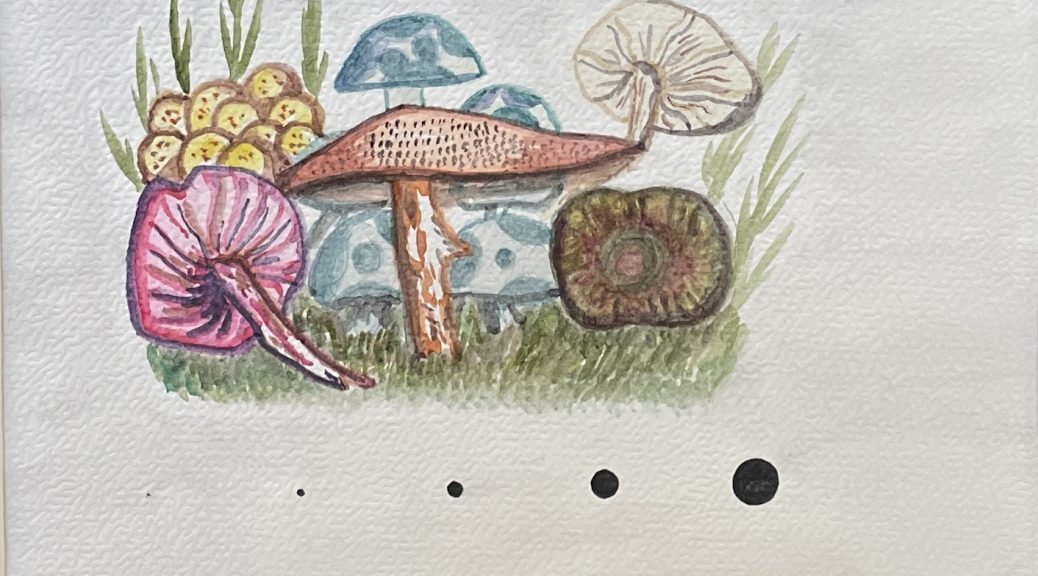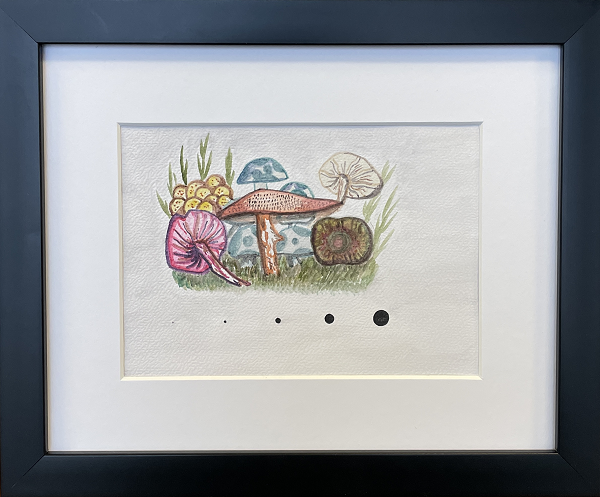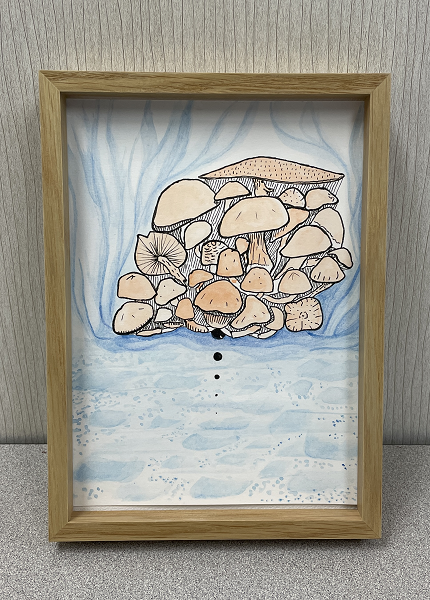
God’s Goodness Prevails
Frodo: I can’t do this, Sam.
Sam: I know. It’s all wrong. By rights we shouldn’t even be here. But we are. It’s like in the great stories, Mr. Frodo. The ones that really mattered. Full of darkness and danger they were. And sometimes you didn’t want to know the end. Because how could the end be happy?
How could the world go back to the way it was when so much bad had happened? But in the end, it’s only a passing thing, this shadow. Even darkness must pass. A new day will come. And when the sun shines it will shine out the clearer.
Those were the stories that stayed with you. That meant something. Even if you were too small to understand why. But I think, Mr. Frodo, I do understand. I know now. Folk in those stories had lots of chances of turning back only they didn’t. They kept going. Because they were holding on to something.
Frodo: What are we holding on to, Sam?
Sam: That there’s some good in this world, Mr. Frodo. And it’s worth fighting for.
—The Lord of the Rings: The Two Towers movie, 2002
Warning. This article contains spoilers about The Lord of the Rings series.
Seven minute read
God’s goodness can be explained through an infinite amount of ways. Two seemingly unrelated subjects inspired a reflection on God’s goodness. I rewatched The Lord of the Rings movie series while recovering from a bad cold. During the same season, I had a conversation with a good friend about mushrooms. On a spiritual level, they both revealed to me God’s inherent goodness.
Peter Jackson directed the epic adaptation of J.R.R. Tolkien’s masterpieces. This trilogy is a story based on good overcoming evil. The fellowship came together to destroy the One Ring, which tempted many people in the wrong way, with a selfish lust for power that ended up destroying those who tried to possess it. The Fellowship represented the good guys (like Hobbits, elves, and certain kinds of men). Sauron and his agents represented the evil guys (like Saruman, the orcs, and the Nazguls).
The topic of good and evil is palpable but misunderstood. Throughout history, we have misplaced good as evil and evil as good. Our culture today dangerously defines good as something subjective. On an individual level, our pride and its self-justification confuses the concept of right and wrong. It is a sly and wounding judgement contrary to our inner conscience. When we see or hear others commit some form of evil, we condemn them as being evil themselves, and never having the capacity to turn back. But that’s not true. No one is irredeemable. We may make mistakes, but we are not mistakes. On the other hand, if we notice what is good, we may see it through appearance alone and not by intention. Appearances are tricky because they can be quite deceiving. Such is that we treat this topic of morality completely upside down.
But the greatest stories, like The Lord of the Rings, reveal the greatest truths. There is such a thing as good and such a thing as evil, and we mustn’t confuse them, nor act as if they don’t exist. We can’t ignore the problem of evil because there’s always a great battle being fought against it. But while evil may coexist alongside goodness, it is not triumphant. The biggest lesson I took away from the movie series is that goodness always wins. There were several moments in the movie where everything seemed hopeless for the good guys—outnumbered battles, abandonment from their own allies, and even betrayal within the Fellowship. But in each of those instances, great powers helped them overcome improbable odds in war, kingdoms eventually came together to fight, and fallen men were redeemed through repentance.
This imperishable quality of goodness is a lesson for our spiritual life and relationship with God. Goodness is victorious because God is love. His love overcame death and its enemies. God sent Jesus Christ, his only begotten Son, into this world to redeem us from sin. At the end of his life, Christ willingly suffered for our sake. He underwent an intense agony, a harrowing scourging, a humiliating crowning, a grueling carrying, and a tortuous crucifixion so that love would prove itself victorious. The folly of the Cross and its apparent failure was succeeded by the Resurrection. Christ’s sacrifice on the cross became the very victory over the enemy. Saint Paul later spoke about love, writing, “It bears all things, believes all things, hopes all things, endures all things. Love never ends” (1 Corinthians 13:7-8). God’s love defines us; not sin, not our shortcomings, not our wounds, not our worldly successes nor our God-given talents. The question is not whether we are loved by God; the question is whether we love Him.
God’s goodness entails an unlimited capacity for mercy. God brings good out of our mistakes, failings, weaknesses, and injuries. It is like a pivotal scene in the trilogy’s third movie, The Return of the King. Pippin, one of the Hobbits in the Fellowship, got lost in his curiosity. Out of his mischievousness, he looked deep within a spherical glass, not knowing that it was used to communicate with the evil enemy Sauron. This was a grave mistake. However, Pippin accidentally fools Sauron into believing that he had the One Ring. Seeing the enemy’s plan, Pippin became a divergence for Sauron’s army. This bought Frodo, the true ring bearer, and his friend Sam, more time for their journey into Mordor. These circumstances eventually gave Frodo the chance to destroy the One Ring, finally eliminating Sauron and his allegiances. Good came from Pippin’s foolishness. It is a reminder that “all things work together for our good, for those who love God” (see Romans 8:28).
The Mushrooming
Around the same time I rewatched Peter Jackson’s adaptation of The Lord of The Rings, my friend spoke about God’s goodness through mushrooms. The Fellowship and mushrooms both astonishingly and surprisingly glorify God. His goodness prompted a deeper reflection, to which I painted a picture (literally!) of good triumphing over evil, not with battle scenes and orcs, but with mushrooms and black dots.
I paraphrase my friend’s words, “The good keeps mushrooming, growing and growing, while the evil that happens in this world becomes less and less, like little dots that get smaller and smaller.”
Each artwork showcases a story as if it was a movie scene. These mushrooms represent God’s goodness and the dots represent evil. The mushrooms grow in bunches while the dots get smaller. I deliberately drew five dots in each creation. It’s very difficult to see the fifth and smallest dot, because evil gets smaller over time; goodness always wins.
Mushrooming 0

The mushrooms grow parallel to the five black dots. Goodness grows as evil is present. It is the end of time when the just will be separated from the wicked (see Matthew 13:49). Like sin washed away by God’s mercy, the black dots get smaller and smaller, to the point of nothingness. We can hear John the Baptist’s proclamation echoing in the scene, “… Here is the Lamb of God who takes away the sin of the world!” (John 1:29).
Mushrooming I

When we focus on evil, represented by the black dots, it is very hard to focus on the beauty, colour, and glory of every single mushroom. However, if we look at the mushrooms, we can hardly see the black dots, especially the smallest ones. These mushrooms are also directly parallel with the black dots. This too represents that good and evil grow together in this world, where, at its end, the just will be separated from the wicked. Only goodness remains.
Mushrooming II

I painted the mushrooms growing from the ocean floor as a reminder of God’s mercy. Merciful love is a primordial characteristic of God’s goodness. His mercy is greater than the earth’s deepest place. God is always bigger and better. If you think His mercy is as deep as the ocean floor, you may be thinking vastly in human terms, but not in God’s terms. God’s goodness and mercy actually extend beyond any possible depth. This can be hard to believe.
Like God’s chosen apostles, we too can cry out, “Lord, increase our faith!” (see Luke 17:5). God, who is infinite mercy, calls us to partake in His plan of goodness. We are called to go bigger and be better. Should we be wronged, we ought not to forgive only seven times, but to forgive over and over, without limit (see Matthew 18:22). “To pardon an injustice received is to heal the wound in your own heart,” said St. Vincent de Paul. We are no better than other people. We are all sinners in need of mercy. God’s goodness extends to everyone, and it is infinitely great. He draws a good out of evil, and a greater good had there been no evil. This is why the mushrooms are growing from the largest black dot in this artwork.
Mushrooming III

The mushrooms are hidden among the black foliage. This represents how goodness is oftentimes hidden among the noise of evil around it. Goodness is humble, holy, and blessed. Virtues do not praise themselves nor look for affirmation; contrastingly, evil is a noisy gong and a clanging cymbal–without love, with loudness, making a scene because it is empty and knows it will not prevail nor last. Evil dies loudly in its grave; goodness, with a serene and quiet strength, prevails ahead in eternity.
All good things point back to God. He is the source of everything that is good. We can give praise and adulation to Jackson and Tolkien’s masterful work or maybe even smile at these inspirational mushrooms. But it’s a glimmer of the ultimate story: the Good News, the life, death, and resurrection of Jesus Christ. The Gospel shares that we are God’s creation, loved without condition, and created good. In His loving plan for our lives, God gave us the gift of life, the gift of Jesus Christ, and the gift of free choice. How will we respond? Today, a choice is set before us in this great battle of good versus evil: will we become like the Fellowship and the many mushrooms, or choose Sauron and the black dots? It is never too late to change your path. Why not join the side that always prevails in the end?